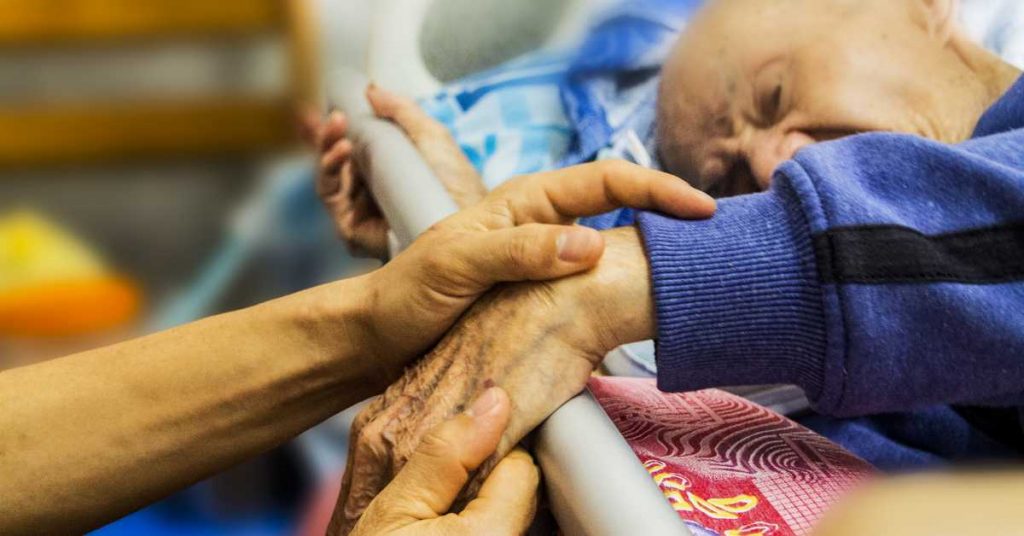Caring for a loved one with a serious illness is one of the most challenging yet meaningful roles you can take on. As a hospice caregiver, you become an essential part of ensuring comfort, dignity, and quality of life for someone nearing the end of life. Hospice caregiving involves a unique blend of practical tasks and emotional support, and it often feels like a journey shared by both the caregiver and the patient.
In this guide, we’ll explore what it means to be a hospice caregiver, the responsibilities involved, the support available from hospice teams, and tips for managing this demanding role. Whether you are already in the role of a hospice caregiver or are preparing for the possibility, this guide will help you navigate the challenges and find the support you need.
What Is a Hospice Caregiver?
A hospice caregiver is typically a family member, friend, or loved one who takes on the role of providing daily care for someone receiving hospice services. The primary goal of hospice care is to ensure comfort and dignity for patients in their final months, weeks, or days of life. Hospice caregiving is not about prolonging life or hastening death—it’s about enhancing the quality of life for the time that remains.
Hospice care is holistic, encompassing medical, emotional, social, and spiritual support. The hospice team, which includes nurses, doctors, social workers, chaplains, and trained volunteers, plays a critical role in supporting caregivers. However, the day-to-day responsibilities and direct care often rest with the hospice caregiver.
Roles and Responsibilities of a Hospice Caregiver
Taking on the role of a hospice caregiver can feel overwhelming, especially as your loved one transitions from hospital care to home-based care. Here are some of the key responsibilities you might handle as a hospice caregiver:
1. Personal Care and Hygiene
- Assisting with bathing, toileting, and personal grooming helps keep the patient clean and comfortable. This can include washing their hair, applying lotion to dry skin, keeping their teeth clean, and providing clean clothes and bed linens.
- Helping with these intimate tasks not only maintains the patient’s physical comfort but also preserves their sense of dignity during a challenging time.
2. Medication Management
- As a hospice caregiver, you are responsible for ensuring prescriptions are filled and administered correctly. This may involve giving pills, syrups, patches, or injections at the proper times and keeping track of medication schedules.
- Proper management of pain medication and other prescriptions is crucial to maintaining symptom control and ensuring the patient’s comfort.
3. Basic Medical Care
- You may need to perform simple medical tasks, such as taking temperature readings, changing bandages on wounds, or applying heat or ice to relieve pain.
- Understanding the use of medical equipment like oxygen machines, wheelchairs, or hospital beds is also part of the caregiver’s role. Training from the hospice team can help you become comfortable with these responsibilities.
4. Emotional and Spiritual Support
- One of the most important aspects of being a hospice caregiver is providing emotional support to your loved one. You might spend time talking, listening, and simply being present with them, helping them feel supported and understood.
- Many patients appreciate spiritual support as well, which can involve engaging with a chaplain or religious leader to explore their beliefs, find peace, or say goodbye to loved ones.
How the Hospice Team Supports Caregivers
While the role of a hospice caregiver can feel all-encompassing, remember that you are not alone. The hospice team is there to support both you and the patient in several ways:
- Education and Training: The hospice team can provide hands-on training in tasks like using medical equipment, managing medications, and performing daily care. Don’t hesitate to ask questions during their visits; the more you know, the more confident you will feel in your caregiving role.
- Regular Visits: Hospice nurses, aides, and other team members make regular visits to monitor the patient’s condition and ensure that the care plan is followed. During these visits, you have a chance to rest or take a break, knowing that your loved one is in good hands.
- 24/7 Support: A key benefit of hospice care is the availability of around-the-clock support. If you encounter a crisis or have a question in the middle of the night, you can reach out to the hospice team for guidance.
- Respite Care: Many hospice programs offer respite care, which allows caregivers to take a break for a few days while the patient is cared for in a facility. This time can be vital for a caregiver’s mental and physical well-being.
Managing the Challenges of Being a Hospice Caregiver
Caregiving can be a physically and emotionally draining experience, and taking care of yourself is essential to being able to care for your loved one. Here are some tips to help you maintain your own well-being as a hospice caregiver:
1. Prioritize Rest and Self-Care
- Lack of sleep and constant worry can take a toll on your health. Try to nap when your loved one naps, or seek help from a doctor if you are struggling with insomnia.
- Take breaks when the hospice aide is visiting, and try to spend a few minutes on activities that refresh you, such as taking a short walk, reading, or simply having a quiet moment to yourself.
2. Ask for Help from Family and Friends
- Don’t hesitate to reach out to family members or friends for help. They might assist with tasks like grocery shopping, sitting with your loved one for a few hours, or even just providing a listening ear.
- Remember, it’s okay to admit that you can’t do it all yourself. Accepting help is a sign of strength, not weakness.
3. Join a Support Group
- Connecting with other caregivers who are going through similar experiences can be incredibly comforting. Support groups offer a safe space to share your challenges, frustrations, and moments of hope.
- Many hospice programs or local community centers offer caregiver support groups, either in-person or online.
The Rewards of Being a Hospice Caregiver
While being a hospice caregiver is undoubtedly challenging, it can also be deeply rewarding. Providing care during this final chapter allows you to share meaningful moments with your loved one, creating a sense of closeness and connection that will remain long after they have passed. Many caregivers find that, despite the hardships, they wouldn’t trade this time for anything.
Hospice caregiving is about more than just physical care—it’s about ensuring that your loved one’s final days are filled with compassion, comfort, and dignity. It’s about helping them feel respected, heard, and surrounded by love. And it’s about knowing that, even in a time of great difficulty, you provided the very best care that you could.
The role of a hospice caregiver is both profound and demanding, involving a mix of practical duties and emotional challenges. But with the support of the hospice team, the help of family and friends, and a focus on self-care, you can navigate this journey with strength and compassion.
At KindredCare, we believe that no caregiver should have to face this journey alone. Our team is here to support you every step of the way, offering resources, guidance, and a listening ear whenever you need it. If you have questions or need assistance, reach out to us at any time. Remember, being a hospice caregiver is a gift of love—both to your loved one and to yourself.
For more information on hospice caregiving and how to provide the best possible care for your loved one, visit KindredCare and connect with our compassionate team. You are not alone in this journey, and we are here to help you through every step.
Frequently Asked Questions (FAQ) About Hospice Caregiving
1. What is a hospice caregiver?
A hospice caregiver is typically a family member or close friend who provides daily care and support for a loved one receiving hospice services. This role involves assisting with personal care, medication management, and offering emotional support, while the hospice team provides supplemental care and guidance.
2. What are the main responsibilities of a hospice caregiver?
Hospice caregivers help with tasks like bathing, grooming, administering medications, managing medical equipment, and providing comfort to the patient. They also coordinate with the hospice team to ensure that the patient’s care plan is followed.
3. How does the hospice team support the caregiver?
The hospice team provides training, regular visits, and 24/7 support through phone consultations. They can also offer respite care, allowing caregivers to take a break for a few days while the patient is cared for in a hospice facility or other suitable setting.
4. Can I still receive hospice care at home?
Yes, hospice care is often provided at home. The hospice team works with the caregiver to ensure that the patient receives quality care in the comfort of their home. If more intensive care is needed temporarily, the hospice team can arrange for short-term inpatient care.
5. What is respite care, and how does it help caregivers?
Respite care allows hospice caregivers to take a short break from their caregiving duties. The hospice team can arrange for the patient to be cared for in a facility or in their home for up to five days, giving caregivers time to rest and recharge.
6. Is it normal to feel overwhelmed as a hospice caregiver?
Yes, it’s completely normal. Hospice caregiving is both physically and emotionally demanding. It’s important to seek support from the hospice team, family, friends, and support groups, and to take care of your own well-being.
7. Can hospice care be stopped if the patient’s condition improves?
Yes, patients can choose to leave hospice care if their condition improves or if they wish to resume curative treatments. Hospice care is flexible, and patients can re-enroll if their needs change later.
8. How do I know when it’s time to consider hospice care?
Hospice care is typically considered when a doctor estimates that a patient has six months or less to live if the illness follows its expected course. If focusing on comfort and quality of life is the priority, it might be time to discuss hospice care with your doctor.
9. What is the difference between hospice care and palliative care?
Hospice care is for patients who are nearing the end of life and have stopped curative treatments, while palliative care can be provided at any stage of a serious illness alongside curative treatments. Both focus on comfort and quality of life.
10. Can a hospice caregiver continue working with the patient’s regular doctor?
Yes, the hospice team will work closely with the patient’s regular doctor to coordinate care. The goal is to ensure a seamless care experience and manage symptoms effectively during the hospice process.



